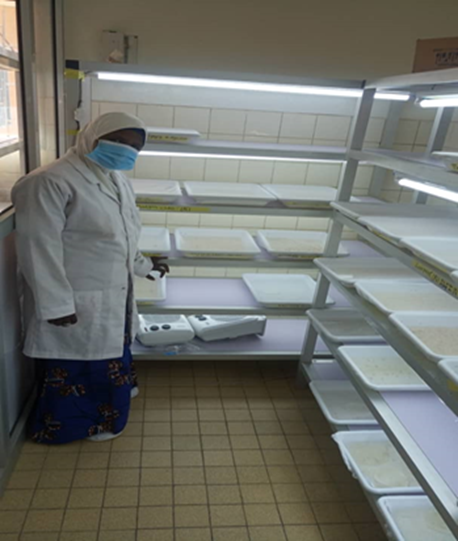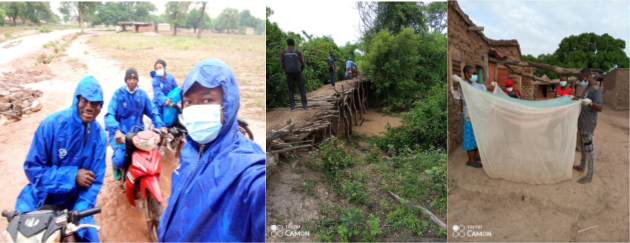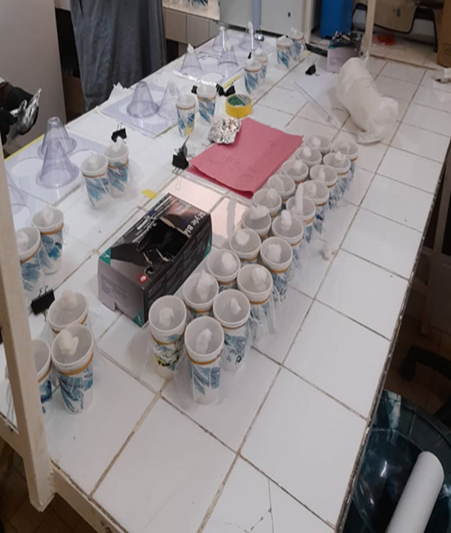Across the globe, scientists, health professionals, and governments struggle to secure adequate funding to study and fight infectious diseases. While COVID-19 remains one of our greatest disease threats, the World Health Organization (WHO) has called on the global health community to maintain malaria prevention services to protect the most vulnerable from this vector-borne disease. According to the WHO World Malaria Report 2021, malaria killed more than 627,000 people in 2020 (up from 558,000 in 2019) and sickened more than 241 million people. Most of those deaths and illnesses were among pregnant women and children under the age of five in sub-Saharan Africa, where malaria is endemic, and resources and health systems can be severely strained. An estimated 49,000 of those deaths were attributed to a disruption of malaria services during the COVID-19 pandemic.
Fortunately, the increase was far lower than WHO’s prediction that deaths would double if malaria services were discontinued during the pandemic. The success goes to country governments and their communities who have raised awareness about malaria and built capacity to carry out services at local levels. The U.S. President’s Malaria Initiative (PMI) partners with countries to prevent, detect, and respond to malaria and to support vector control. PMI funding provides equipment, knowledge, implementation, and training in entomological monitoring and vector control interventions, such as indoor residual spraying and insecticide-treated nets.
Malaria control requires a deep understanding and knowledge of the mosquitoes carrying the parasite that causes the disease. PMI supports governments and local research institutes and universities to study mosquito behavior and determine key entomological indices including vector density, Plasmodium sporozoite infection rates, and vector lifespan, with a comprehensive plan for insecticide resistance monitoring, so that vector control stakeholders can make evidence-based decisions on how to fight disease.

Trained entomologists are critical to ensuring the necessary monitoring is conducted and applied to crucial decision making in the deployment of mosquito control interventions. In many countries, PMI has helped to establish modern entomological laboratories to identify malaria-carrying mosquitoes and monitor the efficacy of vector control interventions. Local laboratories offer opportunities to further train students in advanced entomological techniques and reduce the costs and time in analyzing collected samples for vector species identification, insecticide resistance mechanism and determination of sporozoite infection, allowing for near real-time data for quick decision making.
For example, in Niger, PMI rehabilitated, equipped, and made functional the Center for Medical and Health Research (CERMES) insectary, a public institution that is part of the Institut Pasteur International Network and functions within the Ministry of Health. For the first time, CERMES is now able to rear the susceptible Anopheles gambiae Kisumu strain locally. PMI also trained 18 CERMES technicians in entomological field techniques and laboratory analysis, such as testing mosquito samples for the malaria parasite.
With that training, CERMES technicians have conducted WHO cone and tunnel tests on durability of insecticide-treated nets. This entomological monitoring data was used by Niger’s National Malaria Control Program to prioritize the distribution of next generation nets for the 2022 campaign.
Similarly, in Burkina Faso, PMI partners with the Research Institute of Health Sciences (IRSS) to conduct entomological monitoring. This partnership has been particularly important this year as increased insecurity in country combined with heavy rains have limited travel to the entomological sites. The government, along with donors like PMI and partners like IRSS, needed data on next generation nets for crucial decision making and to enhance acceptance and use of the nets. To access these hard-to-reach sites and continue with critical net durability monitoring, IRSS worked with local communities, including, local health units, law enforcement officials, and local village chiefs to secure the field investigators to collect net samples and survey households about net use.

IRSS also continued with mosquito collection in two inaccessible areas with the collaboration of community-based mosquito collectors, who received advanced training and support from the PMI-funded IRSS team. The training enabled the collectors to carry out human landing catch and pyrethrum spray catch to measure biting rates, indoor resting density, and malaria transmission.
Local partnerships at the national, district and local levels are critical to fighting malaria. Community health workers, local entomology technicians, and vector control decision makers are among key players in the global strategy to combat malaria.


